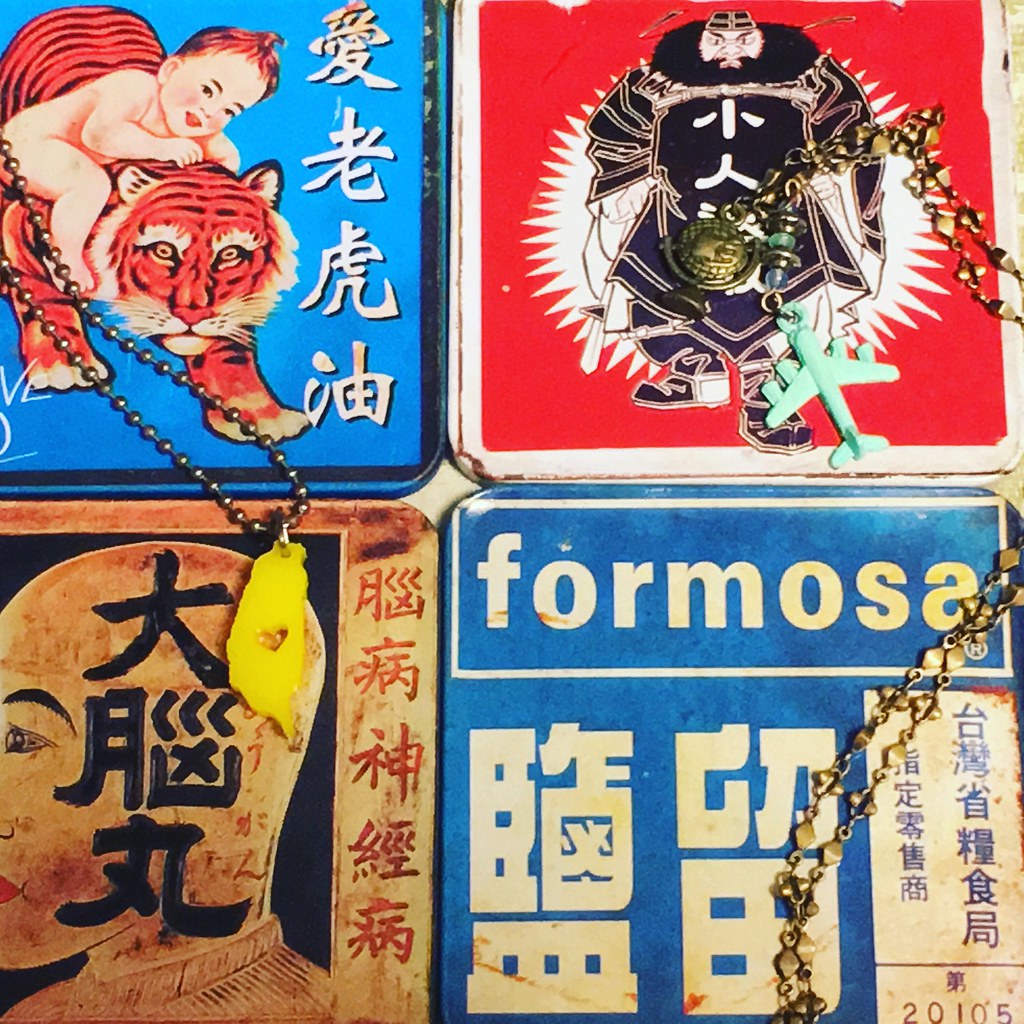So, last week I wrote a letter to the Wall Street Journal replying to an Op-Ed and follow-up letter on US foreign policy on Taiwan. I had to cut it down from the original 1000-or-so words to 300 or so, and was led to believe it would likely be published this week. It hasn't appeared yet, and may never: between then and now the Michael Flynn scandal exploded, and perhaps it got canned in favor of giving that issue more coverage.
I did not include some of my thoughts, such as the fact that Metzger appears to be a typical Dr. Some White Guy Who Is An Expert On China, pontificating on Taiwan despite not knowing enough about it - or rather, having what he knows about it filtered through the lens of being a "China expert", not a "Taiwan expert" - to be commenting credibly. In this sense I do not feel bad about telling a Stanford professor that he is dead wrong.
Nor did I include my thoughts on misconceptions in the media on Taiwan, I plan to do a mythbusting post soon so I can just direct people to that rather than repeating the same tired points.
However, I do want people to hear what I have to say, so I've copied the original longer letter here. I'll let you know if the shorter, edited version ever makes it into the paper. In the meantime, enjoy.
* * *
I read with great interest the recent opinions of John Bolton and Thomas Metzger (both behind a paywall) on the best direction for the US’s future Taiwan policy. It is quite clear that there are some basic truths about Taiwan that Mr. Metzger is ignoring, which ought to be clarified.
First of all, the current framework between Beijing and Taipei is far from “peaceful”. Beijing has a large number of missiles aimed at Taiwan: some estimates put it at over 1,000. Beijing has been quite clear that it is gearing up for an eventual invasion of Taiwan, and has made it clear that the only possible peaceful solution is capitulation. This is not peace: it is a threat.
I did not include some of my thoughts, such as the fact that Metzger appears to be a typical Dr. Some White Guy Who Is An Expert On China, pontificating on Taiwan despite not knowing enough about it - or rather, having what he knows about it filtered through the lens of being a "China expert", not a "Taiwan expert" - to be commenting credibly. In this sense I do not feel bad about telling a Stanford professor that he is dead wrong.
Nor did I include my thoughts on misconceptions in the media on Taiwan, I plan to do a mythbusting post soon so I can just direct people to that rather than repeating the same tired points.
However, I do want people to hear what I have to say, so I've copied the original longer letter here. I'll let you know if the shorter, edited version ever makes it into the paper. In the meantime, enjoy.
* * *
I read with great interest the recent opinions of John Bolton and Thomas Metzger (both behind a paywall) on the best direction for the US’s future Taiwan policy. It is quite clear that there are some basic truths about Taiwan that Mr. Metzger is ignoring, which ought to be clarified.
First of all, the current framework between Beijing and Taipei is far from “peaceful”. Beijing has a large number of missiles aimed at Taiwan: some estimates put it at over 1,000. Beijing has been quite clear that it is gearing up for an eventual invasion of Taiwan, and has made it clear that the only possible peaceful solution is capitulation. This is not peace: it is a threat.
A situation that fragile, where one side has everything to lose and the other comparatively little, cannot be called a successful framework.
This is especially true given that most Taiwanese citizens do not identify primarily as Chinese. Unification of any kind is not acceptable to the majority of citizens, and likely never will be. What their government claims on paper – a claim made by the former dictatorship, nothing the Taiwanese people ever agreed to democratically – is immaterial. It does not affect their views.
It is true that the Republic of China, which is the current government of Taiwan, claims to be the sole government of all of China. Again, this claim does not reflect the views of the Taiwanese people. The claim cannot be formally retracted, nor the name of the country changed: from Beijing’s perspective, any of these actions would constitute a declaration of formal independence, which would precipitate an immediate war. To insist that as long as the Republic of China exists that Taiwan is a part of China, and yet to scold Taiwan for provoking China in any way, admonishing them instead to pursue peaceful relations, is to essentially trap Taiwan in a Catch-22. To do so at best makes one a 'useful idiot' of China.
This change has been brewing since full democratization in the 1990s, and has only grown since the upheavals in Taiwanese civil society in 2014. Metzger fails again, then, to understand the reception that former President Ma’s meeting with Chinese President Xi received in Taiwan: when it did not elicit eyerolls, it was ignored more or less completely in civil society despite a great deal of media coverage. The Ma-Xi meeting was a footnote to a failed presidency, the last gasp of an administration whose views were no longer in sync with the electorate: few in Taiwan would say that Ma’s China strategy was successful, and few would agree that it is the best framework for the future.
In short, the Ma-Xi meeting was not “momentous” as Metzger claims; it was a desperate grasp for historical relevance by a leader on his way out. By all measures, it failed. One need only look at the outcome of the 2016 elections in Taiwan, as well as the continued relevance of the 2014 student movements there, to see it.
A final, crucial misunderstanding taken as fact by Mr. Metzger is his characterizing Taiwan-China relations as “respecting both the autonomy of the Taipei regime and its existence as one part of China.” First of all, the connotation of “regime” is that of an authoritarian government. That describes China, not Taiwan, which is a vibrant and thriving democracy. Secondly, few in Taiwan agree that Taiwan is “one part of China” is deeply disrespectful to the Taiwanese people. It is not possible to respect Taiwan if you, in the same breath, label it as a part of another country rather than a sovereign state in its own right.
International law supports the possibility of Taiwanese independence: under different interpretations of international law, Taiwan is either an independent nation, or its status is undetermined. There is no accurate interpretation that determines Taiwan to be a Chinese territory.
Even US policy on Taiwan follows this convention – the US does not, and has never, agreed that Taiwan is a part of China. Bolton is entirely correct that it merely acknowledges Beijing’s claim to Taiwan, nothing more. This, at least, is clear in a confusing array of papers, positions, assurances and communiqués that were created to be deliberately vague.
The US’s Taiwan policy, at its heart, calls for a peaceful resolution of the issue, and allows for any given resolution agreed on by both sides. This leaves room not only for the US to communicate with Taiwanese leaders, but also for American support of eventual Taiwanese independence (though not as the government of China) or the normalization of relations with Taiwan. It does not in any way shackle the US to China’s forceful demands.
There does not need, then, to be a change in US policy on Taiwan. All we need to do is acknowledge what is already true.




